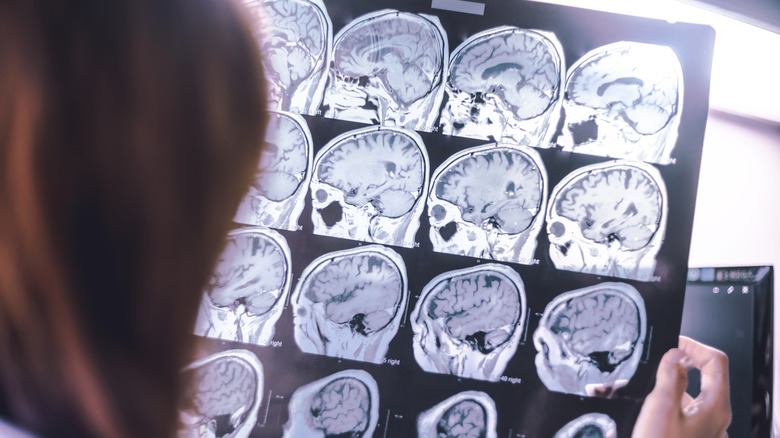What Is Atrophy?
The digital revolution has changed the world in far too many ways to count. Some of those changes, like increased connection between far-flung parts of the globe, were easy to anticipate. Others weren't as obvious, though, like changes in the ways people learn or the increased span of the average person's knowledge.
Take medical information, for example. Before the increase in easily accessible information — not to mention procedural shows — there probably weren't as many people who would feel the need to know the medical definition of the word "atrophy."
Merriam-Webster provides the general definition of the word as "a wasting away or progressive decline." Atrophy can apply to a range of topics, and in each situation, the specifics are a little different. An atrophy in work skills, for instance, can be the result of years of unemployment. Meanwhile, an atrophy of imagination is a slow waning of creative thought. In the medical field, however, "atrophy" is defined based on which part of the body is experiencing it.
It can be a symptom of disease in a specific body part
Merriam-Webster's definition still holds true in the medical world. Atrophy is the slow wasting away of various body parts. The specific type of atrophy depends on the part of the body affected.
Muscular atrophy, for example, affects the body's muscular system. The National Library of Medicine explains that it can set in for people who are bedridden or living sedentary lifestyles. Burns and malnutrition can also cause muscular atrophy, among other factors. Early muscular atrophy may simply look like basic muscle loss. But if it is prolonged or noticeable, the NLM suggests calling a medical provider.
Cerebral atrophy, on the other hand, is the loss of neurons in the brain as well as connections between the neurons. This particular form of atrophy is common in diseases that affect the brain, as pointed out by the National Institute of Neurological Disorders and Stroke. As with muscular atrophy, there are no treatments specifically for cerebral atrophy. Since it is often a cause of a larger issue, treating the issue treats the atrophy.

